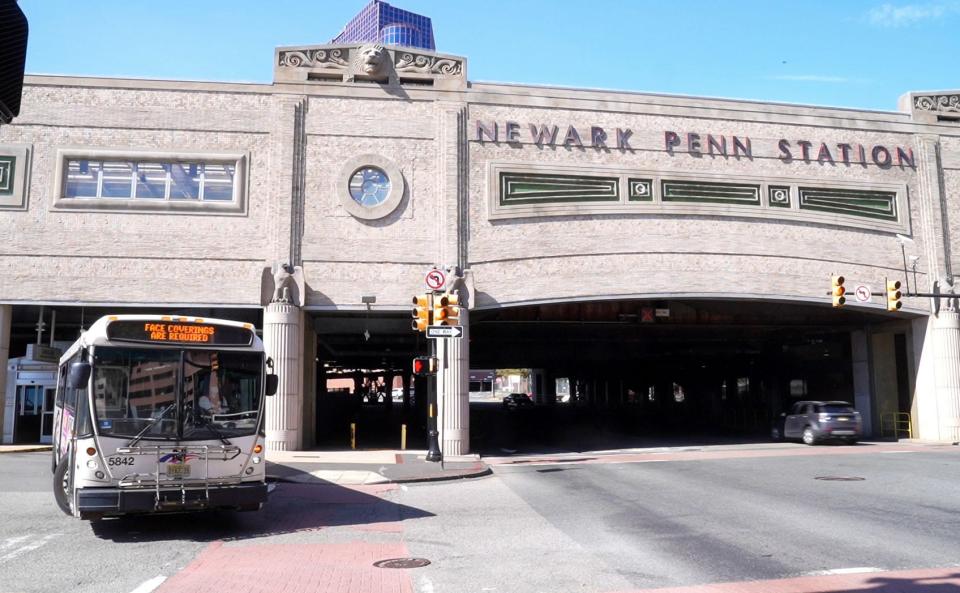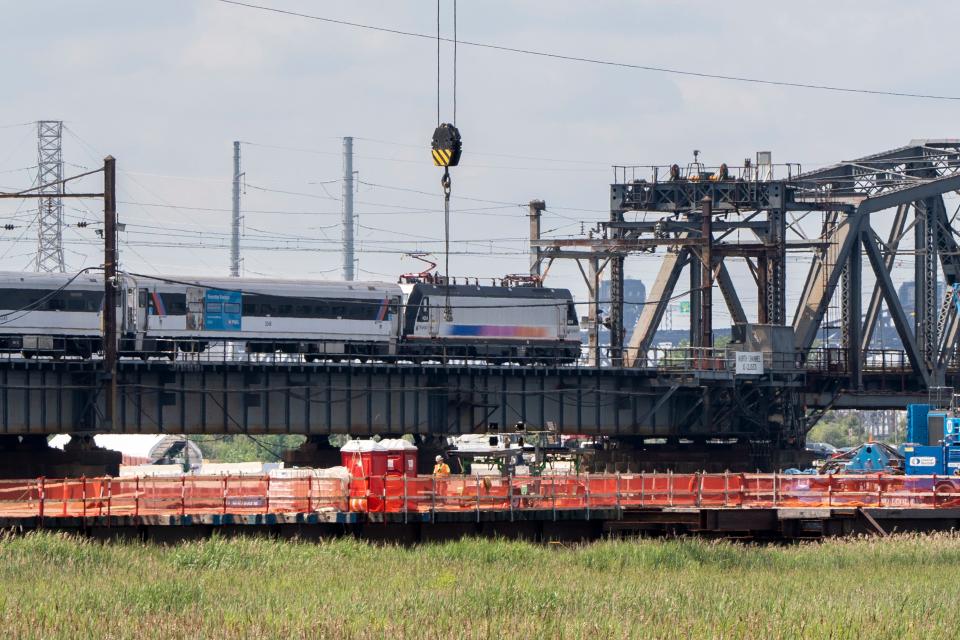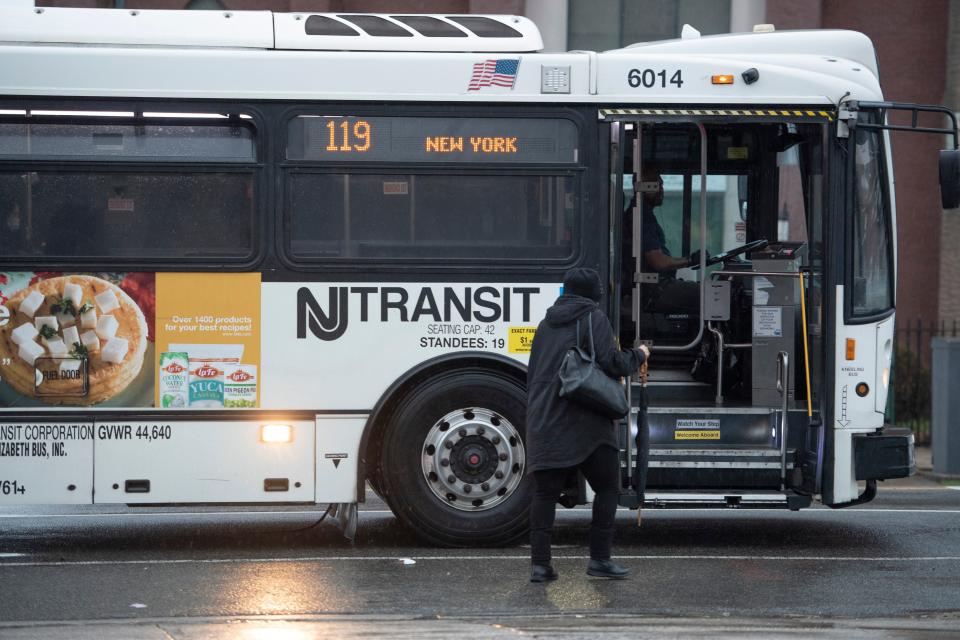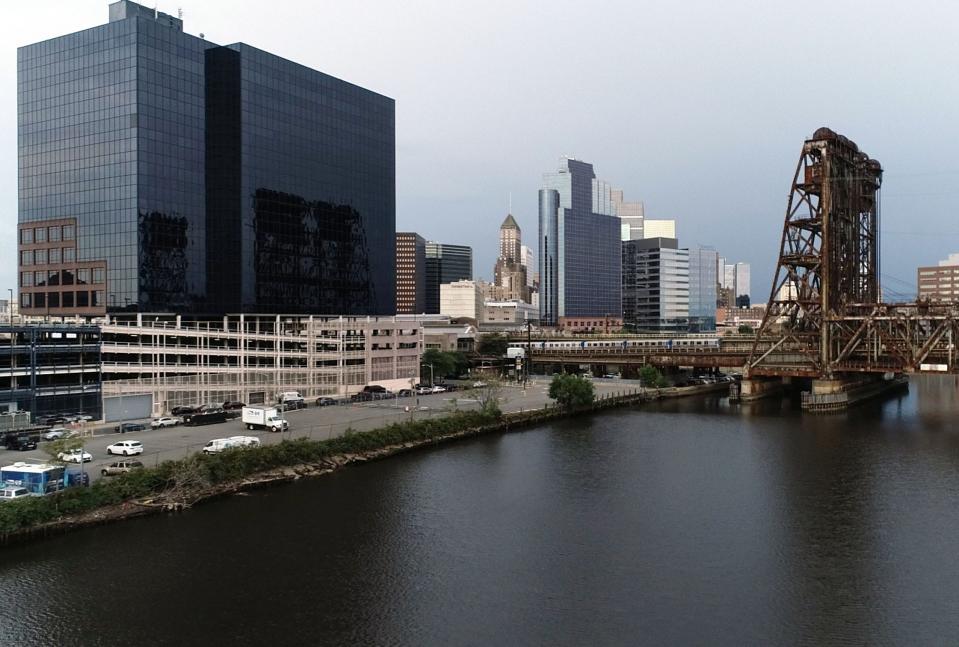NJ Transit's 'most outstanding' award surprises some frustrated riders, despite successes
For riders who weather the irritation of routine delays and cancellations, it may come as a striking irony that NJ Transit has received the “most outstanding public transportation agency” award for its achievements from 2020 through 2022.
The announcement by the American Public Transportation Association comes about a month after Gov. Phil Murphy declared on Fox5NY, “NJ Transit — we largely fixed it,” which harkens back to a campaign promise to fix the public transportation agency “if it kills me.”
The award is based on both quantitative metrics and 12 categories of qualitative categories, including safety, operations, maintenance, access, diversity, customer service, financial management, sustainability, workforce development, attendance and employee costs, marketing and community relations.

Asked why the judges, who are peers from other agencies, thought NJ Transit rose to the top of a group of 19, association spokeswoman Amy Thompson said they don’t disclose that information, except to say the agency showed “specific improvements in the last three years in the 12 categories.”
Three other agencies also received the award: SunLine Transit Agency in Thousand Palms, California; Pinellas Suncoast Transit Authority in St. Petersburg, Florida; and Alameda-Contra Costa Transit District in Oakland, California.
This is the fifth time NJ Transit has won the award. The other times were in 1984, 1994, 1996 and 1997.
For some NJ Transit commuters, the news fell flat as they griped on social media about recent canceled or delayed trains or long gaps in scheduled service across the bus, rail and light rail system for weekend and off-peak periods.
Nicholas Klein, an associate professor in Cornell University's department of city and regional planning, said it is possible that NJ Transit has made significant achievements while still letting down some commuters.
“Riders can be very frustrated, and NJ Transit can be doing well within the narrow framework of what they’re doing,” Klein said. “It’s a very hard time to be a transit operator, so I’m very sympathetic to the challenges they’re facing, trying to get riders back on transit.

"They see budget shortfalls, challenges hiring drivers," Klein said of transit agencies. "These are really difficult things that they have to do, but it’s sort of unfair to ask them to fix them on their own.”
The danger, he said, is an award of outstanding performance signaling to state leaders “that a transit agency doesn’t need investment, doesn’t need more attention, doesn’t need more work. There’s a lot they can be doing better.”
Myriad achievements
By many metrics, NJ Transit is an improved agency and public transportation system.
During the award period, from 2020 to 2022, the Murphy administration fixed several problems that had festered during the last administration, while traversing the uncertain territory of running a transit system during an unprecedented pandemic. A lengthy overview of achievements is available on NJ Transit’s “Progress” page on its website, but a few highlights from those three years include:
Restored the ranks of locomotive engineers that went unfilled in the prior administration
Completed positive train control on time despite the complex signal system being well behind schedule when the new administration came in
Took over Hudson County bus service from a private carrier — one accused by the Office of the Attorney General of committing a $15 million fraud against the agency over more than six years — and significantly improved reliability and added service, which led to increased ridership
Advanced more than $4 billion in capital projects, including the $2.3 billion Portal Bridge replacement, which is the largest single project the agency has overseen, and officials say is on time and on budget
Reduced train cancellations, from 4,744 in 2020 (or 2.5% of scheduled trains canceled) to 3,193 canceled trains in 2022 (or 1.48% of scheduled trains cancelled)
Purchased new articulated and electric buses — expanding the fleet for the first time in a decade — and bought new multilevel rail cars and locomotives to replace some equipment over 40 and 50 years old.
NJ Transit President and CEO Kevin Corbett, who took the helm in 2018, noted that none of this would have been possible without the agency’s workforce.
“It is not just a recognition of our successes over the past five years," he said in a statement. "It’s a testament to all the hard work, dedication and contributions of every one of the nearly 12,000 NJ Transit employees.”

Twenty-six NJ Transit employees died from complications from COVID during the pandemic, while many front-line workers drove buses, collected train tickets and cleaned stations and vehicles. Little was known about the disease early on, and masks were scarce, but agency officials kept the system of trains, buses, light rail and disability services running to serve essential workers and those who rely on the system.
A disconnect, for some
Despite the achievements, recent accolades and even receiving its highest-ever customer satisfaction score in 2022 (6.8 out of 10) since NJ Transit began conducting the survey in 2011, a scroll through social media and conversations with commuters make clear that there’s room for improvement.
“To me, NJ Transit is a mediocre agency," said Zach Forstot, a bus commuter from Bergen County, who also sometimes uses Hudson-Bergen Light Rail and trains on the Main Line. "Generally, it gets me to where I want to go for a reasonable price, but the experience is rarely seamless or even pleasant.”
Though train cancellations have dropped, the rate of trains canceled still outpaces that of other commuter railroads in the region. Like much of the nation, NJ Transit is competing — and getting creative — to fill its roster of bus drivers as many business and government sectors are looking to hire people with commercial driver's licenses, but bus trips have been affected due to the shortage.

Court-ordered improvements are also underway after lawsuit settlements in 2022 highlighted how accessible stations had deteriorated and the agency’s Access Link service needed to improve on-time performance and scheduling services.
NJ Transit launched a new pilot partnership earlier this year with Uber and Lyft to serve Access Link customers, and it has been popular with customers in the first few months since the launch.
Agency sued by 28 employees
At least 28 employees sued NJ Transit in 2021 and 2022 — spanning its bus, rail and police staff — accusing the agency of failing to protect them while they worked on the system. The allegations were wide-ranging but included female bus drivers who accused a former boss of sexually assaulting, harassing and stalking them; five police officers who accused a former boss of sexual harassment and allegedly sending unsolicited pornographic material to colleagues; and at least 10 rail conductors who accused the agency of failing to protect them from allegedly unruly passengers.
NJ Transit has denied the allegations in court documents.
In recent years, the agency also hired a court advocate to help employees navigate the court system, and officials have also said they are dedicating more resources to handle internal complaints, conduct employee training and increase diversity.
Biggest challenges still ahead
On the horizon, NJ Transit — and Trenton lawmakers who determine the agency’s annual budget — face what will likely be its biggest hurdle yet, with historic deficits predicted in fiscal years 2025 and 2026; the latter is forecast to be nearly $1 billion.
The agency planned how it spent $4.4 billion in federal COVID aid judiciously, trying to stretch those dollars as many years as possible with ridership lagging because many former riders have worked from home since the start of the pandemic.
Meanwhile, a recent decision to move the agency’s headquarters to an expensive new office space instead of cheaper alternatives has some questioning the decision-making at the agency; the opaqueness of the deal prompted a board member to resign amid repeated requests for more transparency from agency officials.

A restructuring effort is underway now that will consider fare hikes and budget “efficiencies,” including service cuts, layoffs and other corporate consolidation efforts.
Klein, the Cornell professor, who was a longtime NJ Transit commuter, said perhaps the association award will spark the governor and the Legislature to pay more attention to the agency’s long-term needs in order to advance more improvements.
“We need bigger changes at higher levels,” Klein said. “NJ Transit can do their best in a bad situation, but they can’t magically snap their fingers and have everyone commuting back to work at a 9-5; they can’t snap their fingers and have much more funding coming from the state.”
This article originally appeared on NorthJersey.com: NJ Transit gets national 'most outstanding' award for recent gains

